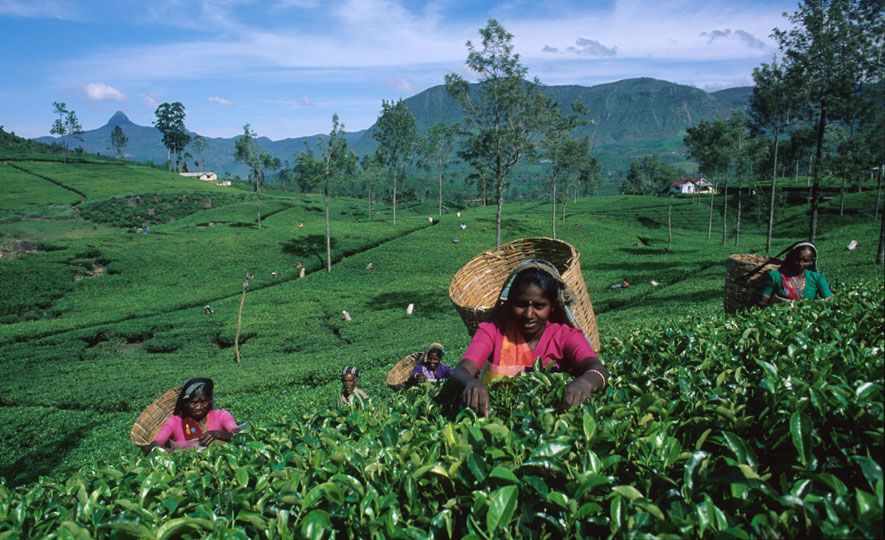Mideast tensions threaten Sri Lankan tea exports
The island nation exports more than 50 per cent of its tea to Iran, Iraq, and Palestine. Attacks in the Red Sea have already slowed deliveries, but exporters have not noticed major price increases for now. However, as the war continues, small farmers will likely pay a heavy price.
Colombo (AsiaNews) – Growing tensions in the Middle East are likely to have a negative impact on Ceylon tea grown in Sri Lanka, which exports more than half of its production to the Gulf.
Houthi attacks in the Red Sea have already slowed delivery and driven up prices, experts note; in the long run, this could negatively impact tea plantations farmers whose livelihoods depend on exports. The Sri Lanka Tea Board (SLTB) said it had no up-to-date data available.
“A similar situation occurred in 2017 when tea exports to Iran dropped by about 19 per cent to 27.4 million kg after the United States reintroduced sanctions. The embargo also had an impact on Iraq," said Randesh Karunasinghe and Dhanushka Samarasekera, experts in the field, speaking to AsiaNews.
"The Middle East and Russia account for about 70 per cent of Sri Lanka's annual tea export, so rising tensions in the region could have a negative impact on the sale of Ceylon tea,” the explain.
“Due to constant political and civil turmoil, some countries in the Middle East have become high-risk markets. The current situation has also affected the re-export business in the UAE,” the two experts added.
“All shipping routes head to the Gulf, and any disruption could result in increases in freight rates. This is also a crucial period for Sri Lanka, because it is when purchases for the winter season start."
“Although developments in the Middle East are likely to have a major impact on tea exports, no major problems have yet been reported,” senior SLTB officials noted.
Ganesh Deivanayagam, president of the Tea Exporters Association, stressed the importance of keeping sea lanes open to ensure the smooth movement of goods and regular prices.
Likewise, Jayantha Karunaratne, who has long worked in the industry, expressed concern about the situation, especially regarding exports to Iran.
This year, Sri Lanka and Iran signed a "tea for oil" agreement, whereby Sri Lankan tea would be exchanged for Iranian oil, which the island nation desperately needs at a time of domestic economic crisis.
Palestine is also one of the main buyers of black tea, but, due to the blockade of ports, exports have taken the overland route through Jordan.
Shipping companies have not reported any surcharges at the moment, but it is likely that as tensions persist, insurance costs will drive up freight rates, causing a general increase in prices.
Sri Lanka's smallholder farmers, who account for 70 per cent of exports, are already struggling; despite the availability of fertilisers, they struggle to buy them because prices have risen considerably in recent months.
22/03/2022 12:15
21/05/2024 16:54







.png)










